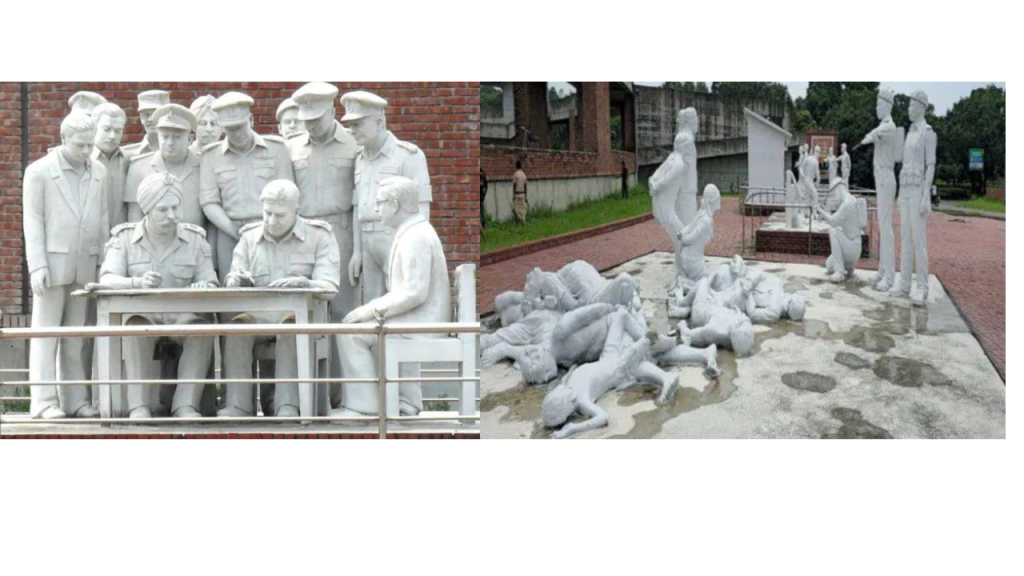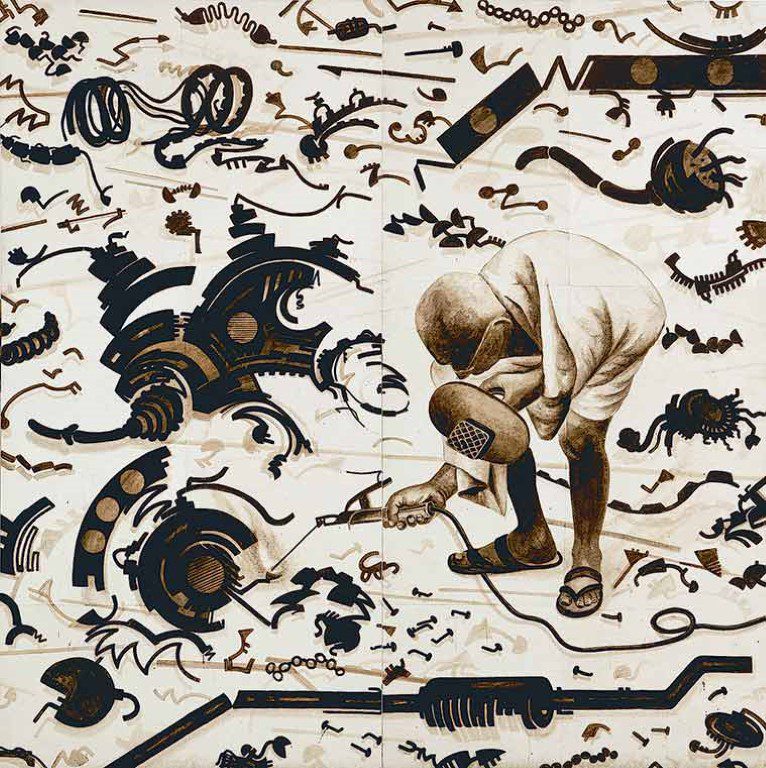Vandalism at Shaheed Memorial Complex
“Anti-India vandals” have destroyed iconic statues built in the memory of Pakistan’s surrender during Bangladesh’ 1971 Liberation War, following weeks of tumult added by Bangladesh. The statues at the Shaheed Memorial Complex in Mujibnagar portrayed the historical signing of Pakistan Army’s ‘Instrument of Surrender’ to Indian Army and Bangladesh Mukti Bahini.
Photographs of the ruined carvings emerged on social media, sparking anger and fear. The statues were stationed at a memorial to commemorate one of the most significant events in history of Bangladesh and India; December 16, 1971 witnessed the defeat and surrender of Pakistani forces marking an absolute victory for the Liberation War principals and commencement for independent nation — Bangladesh.
Political Reactions and Condemnation
Meanwhile, Congress MP Shashi Tharoor also took to Twitter to express his sorrow and distress about the desecration of the statues. He said in a tweet that this was an outrageous act of vandalism and there were several such assaults on Indian cultural centres, temples & homes of Hindus across Bangladesh.
“Sad to see images like this of statues at the 1971 Shaheed Memorial Complex, Mujibnagar, destroyed by anti-India vandals. This follows disgraceful attacks on the Indian cultural centre, temples and Hindu homes in several places, even as reports came in of Muslim civilians protecting other minority homes and places of worship,” Tharoor tweeted.
He also highlighted that the attacks on minorities in Bangladesh reveal a broader agenda among some of the agitators involved in the ongoing protests.
Calls for Action
Tharoor called on Bangladesh’s Nobel Peace Prize-winning interim government, headed by Muhammad Yunus, to crack down on violence there. He added that peace and stability was in the interest of all, irrespective of their faith.
“India stands with the people of Bangladesh at this turbulent time, but such anarchic excess can never be condoned,” Tharoor’s statement read.
Background: The ‘Instrument of Surrender’
The destroyed statue was a symbol for the ‘Instrument of Surrender’, signed on December 16, 1971. Pakistan’s Major-General Amir Abdullah Khan Niazi signed the Instrument of Surrender at around 16:31 IST on December 16, 1971, because of which he surrendered along with his forces (93,000 troopers) to Lieutenant General Jagjit Singh Aurora, Deputy Military Officer Commanding-in-Chief of India’s Eastern Command and in addition Chairman of joint mandate Bangladesh Forces. Provisional Government of Bangladesh: AK Khandker (Deputy Chief of Staff, Bangladesh Forces). The largest military surrender since World War II.
Unrest and Attacks on Minorities
The current unrest in Bangladesh began as student protests against quotas in government jobs but escalated into widespread anti-government demonstrations. These protests have resulted in the deaths of over 400 people and led to the resignation and subsequent escape of Prime Minister Sheikh Hasina to India on August 5. As the situation worsens, minorities, particularly Hindus, have been targeted by mobs who have looted their homes and, in some cases, lynched them.
The violence has caused a significant influx of Bangladeshi refugees into India, particularly in the border states of Bengal.
Muhammad Yunus’ Appeal for Peace
Muhammad Yunus, the interim government chief, called the assaults “heinous” and stated that minorities ought to be secure. The 84-year-old Nobel laureate has asked all Bangladeshis to look after those Hindu, Buddhist and Christian families who are vulnerable. Yunus has a message to the students who are fronting the protests: cautioning you against anti-social elements, he asks you to stick to your targets of advancement and improvement.





